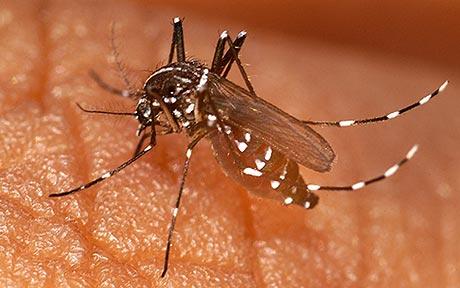British drugmaker GlaxoSmithKline (GSK) has developed the world’s first anti-malaria vaccine, designed for use on children in Africa.
If GSK acquires the regulatory approval it is currently seeking, it will mark a big step forward in the fight against the mosquito-borne parasitic disease, which currently kills over 600,000 people a year.
The EMA submission is the first step in the regulatory process toward making the RTS,S vaccine candidate available as an addition to existing tools currently recommended for malaria prevention. An effective vaccine for use alongside other measures such as bednets and anti-malarial medicines would represent a advance in malaria control. To-date there is no licensed vaccine available for the prevention of malaria.
If a positive opinion from the EMA is granted, the WHO has indicated a policy recommendation may be possible by end of 2015. A policy recommendation is a formal review process by WHO designed to assist in the development of optimal immunisation schedules for diseases that have a global public health impact, such as malaria.
A positive opinion from the EMA would also be the basis for marketing authorisation applications to National Regulatory Authorities (NRAs) in SSA countries. A review by a European medicines agency is required by the majority of African countries prior to registration of a medicinal product manufactured in Europe. If positive, these regulatory decisions would help pave the way toward the large-scale implementation of the vaccine through African national immunisation programmes.
Dr Sophie Biernaux, Head of the Malaria Vaccine Franchise, GSK said: “This is a key moment in GSK’s 30-year journey to develop RTS,S and brings us a step closer to making available the world’s first vaccine that can help protect children in Africa from malaria.”
Data from the phase III vaccine trial programme conducted at 13 African research centres in eight African countries (Burkina Faso, Gabon, Ghana, Kenya, Malawi, Mozambique, Nigeria, and Tanzania) including over 16,000 infants and young children have also been included to support the filing.
Agencies/Canadajournal
 Canada Journal – News of the World Articles and videos to bring you the biggest Canadian news stories from across the country every day
Canada Journal – News of the World Articles and videos to bring you the biggest Canadian news stories from across the country every day



